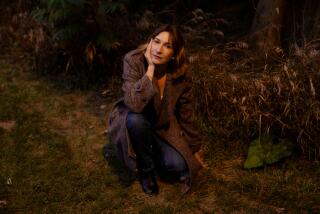In praise of procrastination for writers
Like a lot of writers, I’m well-versed in the art of procrastination. In fact, it often feels like it’s getting worse. We live in a culture of constant distraction, of tweets and Facebook status updates, of ephemera as news. With all the data (trivia?) pouring in across the virtual transom, it’s a wonder that I, that anyone, can get anything done.
At the same time, I want to tell you, procrastination is an important aspect of the writing process — and not just for me. How else to explain the frequency with which Megan McCardle’s recent post in the Atlantic, “Why Writers Are the Worst Procrastinators,” has shown up in my Facebook and Twitter feeds?
McCardle’s piece is excerpted from her book “The Up Side of Down: Why Failing Well Is the Key to Success,” and clearly it’s struck a chord among writers … or at least the writers I know. That’s ironic, because it’s less about writing than the willingness to fail, to take chances, to run the risk of looking foolish in the service of discovering something new.
And yet, this too is what writing is about, and why procrastination can be an effective creative tool. It’s folly, what we do, if you think about it — to make something out of nothing, to spin a story or an argument, to ask a reader to give up his or her time and share with us a fantasy, a dream, a conversation, to seize the moment (for a moment) and try to hold it before it slips away.
“Most writers,” McCardle writes, “manage to get by because, as the deadline creeps closer, their fears of turning in nothing eventually surpasses their fears of turning in something terrible.”
That’s true — but there’s also something else at work, which is that procrastination is a necessary part of the puzzle, a way to deal with the discomfort of laying ourselves out on the page. It’s a strategy (unconscious or otherwise) for mitigating fear and anxiety.
As McCardle notes: “As long as you have not written that article, that speech, that novel, it could still be good. Before you take to the keys, you are Proust and Oscar Wilde and George Orwell all rolled up into one delicious package. By the time you’re finished, you’re more like one of those 1940’s pulp hacks who strung hundred-page paragraphs together with semicolons because it was too much effort to figure out where the sentence should end.”
I’m not sure which pulp hacks, exactly, she is talking about, but the point she makes is resonant. Every piece of writing, after all, is perfect until we start to write it; it falls apart, however, with the first line.
I’m reminded of the character in Albert Camus’ “The Plague” who keeps rewriting the opening sentence of his novel over and over, as if, were he to make it perfect, the rest of the narrative would fall into place. What he’s doing, of course, is avoiding the discovery of just how flawed and difficult his project really is.
“Every book,” Annie Dillard wrote in “The Writing Life,” “has an intrinsic impossibility, which its writer discovers as soon as his first excitement dwindles. The problem … is insoluble … [a] prohibitive structural defect the writer wishes he had never noticed. He writes in spite of that.”
Dillard’s comment is one I’ve kept to heart since I first read it in the 1980s, an explanation of the treacherous pleasures of the writer, the tensions between what we wish for and what we can achieve.
Writing, after all, is about giving up control, about seeing where an idea, a story takes us; it is as much about confronting our inabilities as our creativity. Procrastination helps us deal with that, as well as with the promise of exposure, which all writers, in equal measure, crave and fear.
“[E]very word you write,” McCardle tells us, “becomes a test of just how much ability you have, every article a referendum on how good a writer you are.”
It’s a lot of pressure. If nothing else, then, procrastination can be an essential mechanism for blowing off that steam.
ALSO:
The great American novel? What’s that?
Announcing the LA Times Book Prize finalists for 2013
Bernard Cooper’s portrait of the artist as a young man
More to Read
Sign up for our Book Club newsletter
Get the latest news, events and more from the Los Angeles Times Book Club, and help us get L.A. reading and talking.
You may occasionally receive promotional content from the Los Angeles Times.







